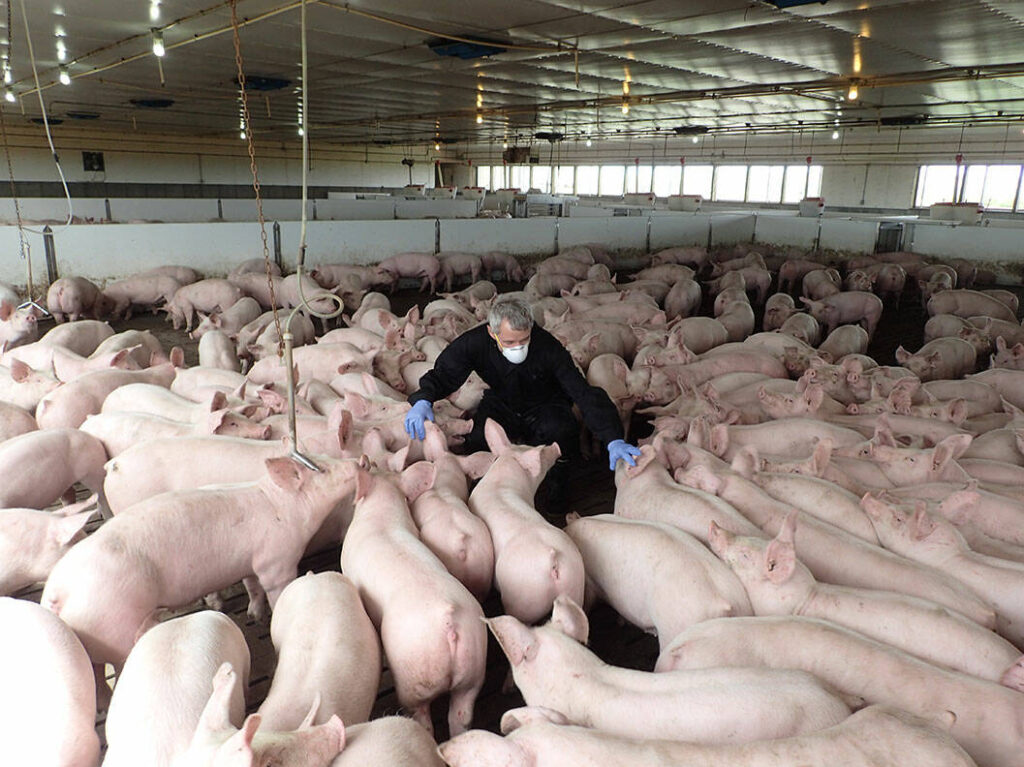Pork producers slated for $567M in case of African swine fever

Glacier FarmMedia—The Government of Canada is spending half a billion dollars as a guardrail in the event of an African swine fever (ASF) outbreak.
Why it matters: A case of African swine fever could put a choke hold on Canadian pork trade; a serious blow for an industry that exports an estimated 70 per cent of its product.
On March 10, Minister of Agriculture and Agri-Food Lawrence MacAulay announced up to $567.16 million to support hog producers should an outbreak of ASF in Canada or the U.S. cause key export markets to close their borders to Canadian pork products and live pigs.
Read Also


Pulse Weekly: China includes peas in tariff threat
Canadian yellow peas were hit with bad news on March 7, but the pulse received good news on March 10. In the bad news, China announced that Friday it’s prepared to impose 100 per cent tariffs on its pea imports from Canada effective March 20, as well as imports of canola oil and canola meal. Plus there are to be 25 per cent levies on imports of Canadian pork and aquatic products.
Canada remains free of ASF. The closest brush with the disease was in 2021 when ASF was confirmed in the Dominican Republic, alarming both the U.S. and Canadian pork sectors.
Prior to that though, ASF ran like wildfire through a list of Asian countries, China being foremost among them. The U.S. Department of Agriculture estimated that, between 2018 and 2021, ASF cut 27.9 tonnes off of Chinese pork production, causing pork prices in that country to more than double.
A domestic case would be the thing of nightmares for Canada’s pork sector.
“Canada is heavily dependent on pork and live pig exports, and the closure of key export markets would be devastating to the pork sector,” Agriculture and Agri-Food Canada noted in the March 10 release that announced the funds. “It would cause hog producers to incur extraordinary costs and force them to make difficult decisions about depopulating their herds.”
Recent years has seen significant mobilization, planning and prevention efforts across various stakeholders in the value chain. Zoning agreements have been made to, hopefully, take some financial sting and maintain some trade in the case of a worst case scenario. There have been conversations around voluntary compartments in the value chain (which hope to do much the same thing through a closed loop of pre-screened value chain partners and traceability). Other topics have included wild pig management (wild swine are an identified vector for the disease in places like Europe).
There have been regular simulation exercises and working groups to lay down details and test Canada’s ASF response.
Farmers look for compensation
The pork industry have previously argued that they needed more clarity on producer compensation, should that ASF response have to be triggered.
“Farmers need to know they have cash to be able to continue to feed the pigs, to be able to pay their staff, to be able to purchase feed, so on and so forth,” the Canadian Pork Council’s veterinary counsellor, Dr. Egan Brockhoff, said after one ASF readiness test last year.
The recently announced $567.16 million sum is not set in stone. AAFC said it will work collaboratively with individual provinces and territories to develop agreements. Once agreements are signed, the overall commitment may increase to reflect a 60:40 cost-shared funding with provincial and territorial partners.
The commitment is part of a larger effort to prevent, prepare for and minimize the impact of an ASF outbreak, said AAFC.
The news release pointed to the federal government’s partnership with the African Swine Fever Industry Preparedness Program, efforts to secure the border against ASF, ongoing awareness campaigns for travelers and small-scale producers, harmonization of testing protocols with North American partners and counterparts, research in Canada and with its partners and the aforementioned zoning arrangements with several countries.
Source: Farmtario.com

